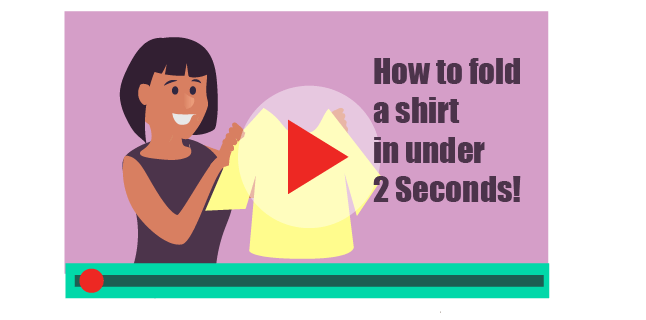Content marketing strategies can fail for a multitude of reasons. Content marketing, for all its benefits can be really hard to get right.
In fact, out of the thousands of businesses that use it to try and draw in a larger audience, only 36% of marketers believe that it’s an effective strategy.
A lot of people fail at content marketing, and they normally don’t have an understanding as to why.
As marketers, it can be easy to dive head first into the excitement of a content campaign. Especially before creating and implementing a clear and actionable plan.
There are so many reasons why marketers may stumble at the first hurdle.
From not defining a clear end goal to not producing customer-centric content that provides value to their search query.
In this article, we’re going to walk through 13 of the main reasons why so many content marketing strategies fail. We’ll also guide you on how to keep track of them to ensure your own strategy is a success.
13 Reasons Why Content Marketing Strategies Fail
We’ve carefully curated 13 reasons which explain why so many brands fail at the start of their content marketing strategy.
1. Your content isn’t new
There’s no point producing a piece of content if it isn’t relevant to what modern day searchers are interested in.
For example, as a website developer, there’s no point talking about how revolutionary Windows 7 was. Unless, of course there’s a clear demand for it in the search volume.
Instead, you’d be much better off talking about the latest updates in Windows 10, as this is likely to be what current tech users are interested in.
For content marketing strategies to succeed, keeping your content relevant and fresh is key.
You want site visitors to view your brand as revolutionary, and the place for which they come to seek new information. Or else how do you ever expect them to see you as an all-powerful authoritative voice of knowledge?

In addition to this, as you continue to build a bank of content, you need to constantly update it. This means going back and refreshing old material so that it’s relevant and better suited for searchers today.
One of the biggest ranking factors that determines your position on the Google search engine results pages is freshness. That is, how new or updated that piece of content is.
Make sure everything on your website is updated with the latest information and industry news. It’s the only way you’ll be able to build your credibility as a brand or thought leader. You’ll also forge better connections with your site visitors, who will come to see you as their source of knowledge.
2. You aren’t bringing anything new to the table
For your content to capture the attention of new audiences, it needs to be current and exciting. It definitely should not be a regurgitation of what someone else has already spoken or written about.
Consider what happens when you type ‘how to fold a shirt’ into Google.
There’s hundreds of written step-by-step guides which show you how best to go about this manoeuvre.
But which one do we always click on?
The top result.
Why?
Because it’s a video that shows you how to fold a shirt in under 2 seconds.

Even though this piece of content is delivering the same piece of advice as all the other websites, it ranks higher than them. This is because it offers a unique angle – how to fold a shirt at lightning speed.
No one wants to spend 3 minutes learning how to fold a shirt. They want a quick guide they can watch, repeat and then do themselves.
So, even if you are trying to create content for generic search terms, make it valuable. Always look to see how you can make your piece offer more value than the competitors above or below you.
Sometimes this can be as simple as doing a how-to guide in a quicker or easier way. Or, it can be taking an opinion piece and completely flipping the angle. Consider telling a story from a new perspective.
3. Your content is boring
It may seem like an obvious point, yet so many brands make the mistake of creating boring content.
Sometimes, we can become so wrapped up in making sure our content covers all the information we want it to, that we completely forget to make sure it’s entertaining and engaging enough to capture our visitors attention.
If you want to have any chance of success, you need to make sure it’s got that ‘wow’ factor. It’s that thing that stops people from scrolling past your content on their phones or desktop. That element that makes them think ‘this looks interesting, let’s take a look.’

Not only does this mean having great meta information that will draw searchers in from a search engine results page. But it also means content that looks visually appealing, reads well, and speaks directly to your audience.
If you’re blog writing, this may mean keeping a light tone with your audience. Or using images throughout to break up chunks of heavy text.
Alternatively, if you’re creating video content, make sure the visuals are engaging and high-quality. Ensure the voiceover isn’t monotone and any music you use is current with what your audience may enjoy listening to.
If your content is boring, you’ll notice a spike in your page’s bounce rate, with little time spent on your page. Though this could also mean that your content isn’t entirely relevant to the searcher’s query. So, you’ll need to judge this one for yourself and see where you need to make changes.
Only you know your audience, and only you will be able to know whether your content is entertaining enough. So, make sure you’re striking the right balance between being informative and entertaining when producing your media.
4. You are taking no risks with your content
Anyone can be good at content. However, to perform with the big-dogs, your content needs to take risks, and do something that no one else is.
Most marketers hate the word risk. After all, risk correlates with instability, volatility, and unpredictability.
But the fact is, successful content marketing strategies require you to take risks.
Think of it like bonds. If you invest in low-risk bonds, they’re typically going to have a small ROI. But, with high-risk bonds, though the potential to lose more is higher, so is the opportunity to win big.
This doesn’t mean you have to create content that’s totally ‘out there’ or doesn’t align with your brand or your voice at all.
It means thinking creatively and outside of the box. For example, if you want to write about an opinion piece, try tackling it from another angle.
Or, if you’re creating video content, don’t opt for the same style as your competitors. Use different audio, test new camera angles. By doing this, you’ll create a video that provokes thought within your viewers and actually engages them.
If there’s a piece of news in the world that your brand has a strong opinion on, don’t be afraid to share it. It’s far better to be honest to your brand values than force an opinion that you don’t believe in.
As long as you’re consistently ‘risky’ and authentic to your brand, then your audience will keep coming back for more. There’s nothing more appealing to a consumer than a brand that’s open, honest and stands out from the rest.
5. You are not creating enough content
This is possibly one of the biggest factors that affects a brands inability to rank highly for the keywords they’re targeting.
When it comes to content, consistency is key. And that consistency needs to be frequent and often.
Now, that doesn’t mean being following in the footsteps of mainstream brands such as the Huffington Post who post a new blog every 58 seconds.
Firstly, this is probably near impossible for you to do. Secondly, even if you could post content that often, it would be of such low quality that it wouldn’t have any effect on your rankings.

But, if you want your content marketing strategies to make a real impact, you need to dedicate the time and resources needed to release content several times a week.
The digital marketplace is so overcrowded today. To break through the noise, you need to consistently put your name out there. And posting a single blog post once a month or even weekly isn’t going to cut it.
So, if you’re currently stuck at a content crossroad and are not sure how to best move forward, try creating a content calendar and determine what extra resource you may need to get something out regularly that’s still of high quality.
It may just mean you need to create a few posts ahead of schedule so that you always have something being published. Alternatively, it could mean you need to recruit extra resources to allow you to tackle content marketing with more vigour.
6. Your content is low quality
Low quality content is one of the main reasons why websites often experience a high bounce rate and as a result, low page rankings.
Now, low quality doesn’t just correlate to blurry images, slow load speeds and bad spelling and grammar – though of course this does have a major impact on your rankings.
The quality of your content relates to the overall experience of your visitor, which also includes how relevant your material is to the user, and whether it offers a solution to their query.
Low quality content can cause a lot of damage to your brand, and you never want to be actively publishing things which you don’t think are a true reflection of your best work.
For one, you’ll damage your ranking potential. If your pages have a high bounce rate because the content isn’t clicking with your users, search engines like Google will read this as a sign that your content isn’t relevant and shouldn’t be shown to those with similar search queries.
Secondly, posting low quality content has the ability to damage or even ruin your reputation. If enough visitors come to your site and are disappointed with the quality of it, they’ll associate your brand with a negative experience. And with the power of the word of mouth, you could soon find your business under murky waters.
7. You are not promoting your content
It’s all well and good writing some killer content, but unless you’re actively promoting it to your target audience, they’re not going to know it’s there.
Unless you’re a mainstream brand with a sizable following and top rankings, it’s very unlikely that people are going to be regularly checking your site for new content or sporadically stumble across it.
If you want to drive more traffic to your site and build awareness of your brand online, you’re going to need to put in the hard work and make noise about who you are and the materials you have on offer.
Digital marketing opens so many free advertising channels for you to promote and share the content you’re creating.

Through your social media channels, email newsletters and even pop-ups on your site, there is some great digital real estate for you to take advantage of. Make use of these channels to shout about how great your content is and capture your audience’s attention.
8. You are writing for yourself, rather than for your audience
Many content marketing strategies fail due to a lack of understanding of their core audience. In fact, one of the biggest pitfalls brands face is losing track of who they’re writing for.
The whole premise of content marketing is to create engaging, entertaining and relevant material that directly answers your audience’s search queries. Not to promote a new product or service for your brand.
It’s about using this material to forge connections and build trust with your site visitors, who will look to you as a source of knowledge when they next have a search query that’s related to your line of business.
Then, when these searchers come to make a purchasing decision in the future, they should associate your brand with having helped them in the past, and they’ll be more likely to enter into the sales process trusting that you’re a reliable business.
But what many marketers do instead is use content marketing as another way to promote their product or services. And it rarely pays off.
Consumers are constantly bombarded with hard sales, offers and promotions. And sometimes, they just want to consume information without being pushed towards a sale.
Your content should be the outlet that they so often crave and be tailored exactly to what they’re searching for.
Everything you produce should be based on keyword research. Unless they’re looking for ‘cheap,’ ‘discounts,’ and ‘deals’ don’t base your content around it.
Take a customer-centric approach with everything you do and make sure your content is always adding value to their search query.
9. Your content isn’t relevant
Search engines like Google are all about connecting searchers to the most useful, relevant and informative content.
In fact, Google even says that their algorithm works by sorting through hundreds of billions of webpages in their Search index to find the most relevant, useful results for what you’re looking for.

It’s a pretty simple concept to grasp. If your content isn’t relevant to what your searchers are looking for, it’s not going to appear in their SERPs.
Sadly, it’s one of those things which so many people get wrong. They do their detailed keyword research. As such, they believe that the content they’re producing is relevant to the query.
Yet, they don’t realise that they’ve missed the benchmark by interpreting the searcher’s intent incorrectly.
Or they get so wrapped up in a great concept for content, that they lose sight of what its purpose is. And then, they end up with a great piece of content which no one is reading.
So, throughout the content creation process, always refer back to your keyword research and what phrases searchers are looking for. It’ll keep your content on-track and stop you from creating something which isn’t relevant.
10. You don’t know who your audience is
In order for your content to be successful, you need to rely on your audience to consume it.
And in order for your audience to consume your content, it needs to address their interests. It should also speak to them in a way that they want to be spoken to.
So, before you even begin to think about getting those creative juices flowing, you need to first have an incredibly fine-tuned understanding of who your audience is.

It’s important to note that your physical audience may be completely different to your online audience. You could be reaching people of a different demographic, with different spending habits and interests.
To research your audience, try and find as many opportunities to speak to them online as possible.
Use forums like Quora and Reddit to search for topics related to your industry. Here you’ll find plenty of potential audience members, all eager to find answers to their questions.
You can also use your social media to find communities of people interested in your niche. Using hashtags related to your business or searching for your competitors’ social media platforms can help. It will open you up to new audiences and show you how your competitors are speaking to them.
And, if you have a solid newsletter subscription list, don’t be afraid to include a link to a survey. It’s a great way to find out more information about your audience.
The more information you can gather about your audience, the better targeted your content will be. You’ll be able to speak to them in a way which best connects with them. As well as, produce content which you know they’re going to enjoy reading or consuming.
As soon as you align your content marketing strategies with your audience and their interests, you will see results. You’re going to continue to draw your audience to your site, increase your site traffic and forge relationships with prospective customers.
11. You are not focusing on value
Your business starts with your customer. And everything you do in business is about forging connections with them that will help turn them into valuable leads in the future.
And the same should apply to your content marketing.
Great content is about creating purposeful and long-lasting connections with your audience. This process will turn them into paying customers who repeatedly return to your brand because they love what you do.
Focusing your content strategy on value means creating material which answers what your audience set out to understand when they did their search query.
This means taking a customer-centric approach in everything you produce to make sure you’re putting your customer’s needs first.
Failure to do so can lead to repeatedly unsuccessful content marketing strategies.
Always remember, the more value you can offer to your customers in your area of expertise, the better. You’ll become more trustworthy, and in turn they are more likely to purchase from you.
12. Your content doesn’t have an end goal in mind
One of the single most important ingredients for successful content marketing strategies is to ensure you have an end goal in sight.

Defining an end goal from the start ensures your content strategy doesn’t lack clarity or direction. And, most importantly, it supports your business objectives.
Remember, a content strategy is a marketing avenue designed to bring the results your brand most needs.
So, when developing your strategy, align your end goal with one of your business objectives. This way you’ll always know how to measure your campaign’s success.
Of course, your end goal doesn’t need to signify the end of your content marketing entirely. After all, content marketing is a strategy which you need to work on continually in order to remain on the top.
But having an end goal in mind will allow you to stop at the right time to re-evaluate. Then, determine which avenue your strategy should next work towards.
13. You don’t have a good process in place
Behind every great campaign is an even better process.
With the business of today’s working world, having a process for your content strategy is vital if you want it to succeed.
Whether you have an in-house team doing the work, or are using an external agency, you need to have a clear idea of what the content creation process is. Otherwise, you’ll fail to keep it aligned with your overall business objectives and reach your end goal.
You need to think of your content strategy as a production line. It begins with research, followed by planning, creation, review and final edits, before publishing and promoting to your target audience.

Skipping or even missing one of these steps could cause your entire strategy to collapse.
The process also needs to be clearly labelled and owned by a particular individual or team. As well as someone observing from a top-level to ensure the process runs smoothly and you retain accountability.
That way, you can ensure you’re creating consistent, well thought-out and planned content. Content that doesn’t lack quality in order to meet a deadline.
Summary
Content marketing is becoming an increasingly saturated market. With more and more brands seeking valuable customer connections to forge trusted and high-converting relationships.
But, what so many brands struggle to grasp is that content marketing is a serious investment. It’s one which needs regular work if you want to drive long-term results.
To make it benefit your business, you need to overcome the above failures with a clearly defined and actionable plan. One which produces content that will add value to your searcher’s queries. And remember, when your content marketing strategies fail, always learn from these mistakes.
If you don’t, or simply don’t have the resource to create a strategy, you could find yourself in trouble.
Using Content Marketing to Expand Your Business
To make content marketing a successful strategy and deliver the results you want, you need to dedicate a substantial amount of time and resources to it.
In fact, most of the reasons for its failure comes down to a lack of time to plan, research or review content. This is a necessary part of content marketing to ensure that it aligns with your searcher’s demands.
But, if you’re relatively new to content marketing, chances are you probably don’t have the capacity. Perhaps you can’t dedicate yourself to your content marketing as much as you would like to. Or you may be worried about getting something wrong
This is where outsourcing your content strategy to a marketing consultant such as myself may benefit your business.
Together, we can create a content marketing plan that clearly identifies a means for its success. One constructed from detailed research and analysis that my in-house team will focus their energies on.
Only once you’re happy with the plan, will my team and I implement and measure the success of the campaign. This allows you to focus your time and energy on other important business matters.
If you would like to discuss how my team and I could help to grow your business online, please get in contact with me. I’d be more than happy to have an obligation-free chat with you. We’ll walk you through some previous examples of our work, and share some of our successful content marketing strategies.







